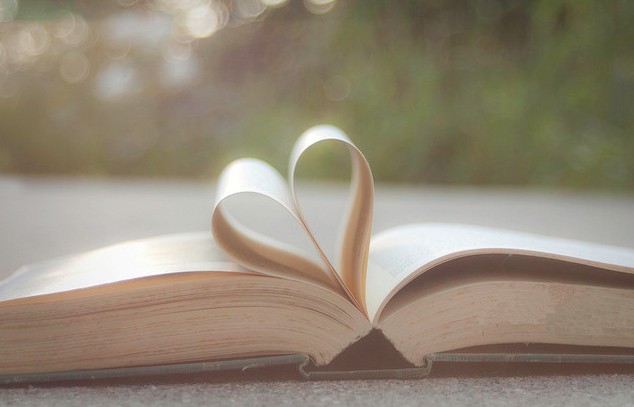Journaling and How it Has Improved My Mental Health

I have been keeping a journal since I was around 12 or 13 years old. I never had the fancy and cute journals starting out; I would just use a regular wide-ruled notebook. And now today as an adult, I still keep a journal, even if I do use it a little less frequently than I used to.
I first started journaling around the time my parents got a divorce and my mom picked up us kids and hightailed it to a brand new state 8 hours away from the only home we had ever known. I took the split of my parents pretty hard and I didn’t really know how to deal with it mentally.
Even before all the family drama from the divorce, I had always been insecure and unsure of myself. I lived in a religious household where, despite never doubting my parents’ love for me, I lived a sheltered life. Being a “church girl”, I wasn’t allowed to step out of line or do anything that would embaress my parents or upset God.
I knew that I was blessed to have a happy and whole family with two parents, loving siblings, and a church home to go to every Sunday with people that admired my parents. My parents were well known in church and in turn, so were us kids. We were constantly being watched by the church members which added more stress to never being allowed to mess up and make mistakes. And we weren’t even Preacher’s Kids.
Like every young kid, I thought my parents were happy. I thought they’d stay together until they were old and gray. I thought they would die together in their old age. But that fantasy came crashing down when my parents called us into their bedroom on Thanksgiving day and told us they were separating. My mother grabbed us and we left the next morning. I found out years later that my father had no idea that my mother had even planned on leaving. He came home from work to an empty house. I never confronted my mother about this but I resented her for a while after I found out.

The divorce just made me feel completely lost and unhappy. My identity was tied to my family and church because that’s what it had been my whole life. After the split, I thought my family was a lie. My parents had put on this perfect image for so many years and spouted off Bible scriptures about a man and woman joining together as one in Christ and yadda yadda yadda. But I looked back on that and thought it was all a lie.
Add to that my beginning stages of puberty, insecurity at my changing body, my introverted nature, and now you have the perfect recipe for a lost preteen trying to find themselves and the meaning of family, while also fighting depression. The only things I found the most solace in were reading and writing. So I decided to write down my thoughts since I couldn’t express them to anyone else.
When I couldn’t tell my parents how their breakup was making me feel inside, I wrote it all in my journal. When I couldn’t tell my small group of friends why I didn’t want to go that party because I’m insecure and have social anxiety, I would write it all in my journal. When I was feeling sad that the boy I had a crush on wasn’t attracted to me even a little bit, I wrote it all in my journal. And when I looked in the mirror and saw nothing but an ugly, pimply faced, skinny, gangly girl that was too tall for her age, I would write it all down in my journal.

My journals have helped me so much over the years because when no one else would listen to me, my journal was there. When I couldn’t express my thoughts verbally in a cohesive manner, my journal was there for me to vomit my thoughts into no matter how confusing they may be; no matter how many times I would erase and scratch out words and sentences. Journaling was my therapy. And I definitely needed therapy, I just didn’t know it at the time.
But as I said, I came from a religious family. Therapy to my parents meant praying the issues away. I wouldn’t find out until after graduating from college and studying psychology that I had even been battling depression then. And I continued to battle it up until my early 20s.
I’ve been called emotional. Aggressive. Angry. Impatient. Mean. Cold. The list goes on, really. I can only remember two people in my life who actually recognized that I might be going through something and suggested counseling. But I rejected it. I think it’s quite common within black families to reject professional help for many reasons that I won’t go into in this post.
Writing down my thoughts, cursing in my journal, crying as I wrote, and scribbling jagged nonsense across the pages was my release of pent up frustration, confusion, and anger. But it wasn’t all bad. I also wrote down all my happy moments, achievements, random chitter chatter, and future goals as well. And having graduated with a master’s degree in counseling now, I know that this was actually an okay method.

Problem-Free Talk
By choosing to journal, I was engaging in Problem-Free Talk with myself. As much as I journaled my anger and pain, I also wrote about positive things or just other aspects of my life in general. I wrote about what-if situations and the things that I liked about myself even if those things were few.
*Problem-Free Talk is usually used in Solution-Focused Brief Counseling sessions to help a counselor get to know the client as a person and see them in a light other than their presenting problem. While I didn’t have a counselor or therapist, having writing sessions where I wasn’t only focusing on the things that made me unhappy, helped me identify other strengths and desires that I have, such as writing.
Acting As If
When I discovered my true passion for writing and telling stories, I created characters that I wanted to be. I put them in situations that I’ve been in before or have witnessed and made them react and handle the situation in ways I wished I would have. I gave them outgoing, extroverted personalities and made them say things that I never had the guts to say. Some people might find this a little sad and like I am living a fake life through my characters. *But ‘acting as if’ is actually a technique used in Adlerian Therapy.
*By taking on a role and acting it out as if you can handle the situation, you just might find out that, you actually can handle whatever situation it was you thought you couldn’t. Engaging in this helped me figure out that I was limiting myself and what I can do based off of my emotions and negative self-talk I had about myself. *This therapy technique challenges self-limiting assumptions and wills you to take action against those thoughts.
Journaling & Bibliotherapy
I’ve loved to read ever since I ever learned how. If I wasn’t reading a book, then I was writing something, so journaling came naturally to me too. I learned later in life that journalingand bibliotherapy are actual counseling techniques used in the Cognitive-Behavioral Approach.
*Bibliotherapy today is used to help readers find pleasure in reading while also releasing mental distress. Videos and movies are also a part of bibliotherapy. One of the major aspects and recommendations of bibliotherapy is that the reader actually identify with at least one of the characters who is experiencing problems within the book that are similar to their own past or present problems.
By reading a book or watching a movie and being able to identify with the character, in a way, we can learn vicariously through that character how to solve our problems. And even if we can’t, due the character in the book making the wrong decisions, we can then learn what it is we absolutely should not do. We can release our internal emotions, feel understood, and explore a new way of living life.
Journaling, on the other hand, is everything I mentioned throughout this article and more. It allows us to express our thoughts, feelings, needs, and desires that are usually kept pent up inside us. *By journaling, we are unknowingly engaging in emotional journaling (expressing emotions through free-flowing ideas; helping to externalize and regulate emotions) and cognitive journaling (focuses more on thoughts, insight, and gaining meaning of our experiences).

While I know that writing in a journal definitely doesn’t work for everyone, as someone who has always been an introvert, this was right up my alley and truly helped me in regulating my thoughts and emotions.
Now that I am older, I still keep a journal. I don’t write in it every single day like I used to when I was younger but when things get a bit tougher than I can handle at the moment, I pull out that journal. Or if something has gone exceptionally well and I’ve already exhausted everyone I can possibly tell, I pull out that journal. When I just need to organize my life or make potential plans for the future, I pull out that journal. Writing in a journal is how I engage in my own form of self care and it has gotten me through some very mentally tough situations.
As someone who wouldn’t even have been able to afford a professional counselor, I’m grateful for journaling and I recommend it highly ♥
*Erford, B.T. (2015). 40 Techniques every counselor should know (2 edition). Pearson
